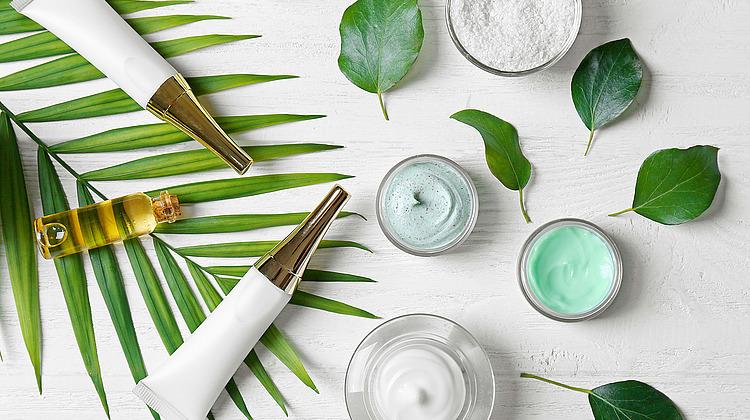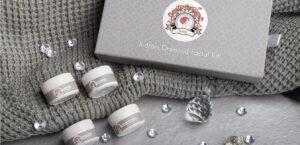Parabens and sulphates are two of the most common preservatives in cosmetics, but what exactly do they do? This blog post explores the benefits of Parabens and sulphate when it comes to making your makeup last longer.
Parabens are used because they have antimicrobial properties that protect against bacteria growth; some people believe this is a problem due to a possible link between paraben use and breast cancer. However, research has found no evidence for such an association – so it’s worth keeping them on your list if you’re looking for a long-lasting product.
Sulphates can also be good options as they keep ingredients from separating or going bad in humid climates. They work by breaking down oil into tinier dirt molecules and removing it away from the surface.

Image Credits: https://www.cossma.com/typo3temp/pics/sh_606834956_7026c6f7ed.jpg
Parabens
Parabens are a type of preservative that is used in many cosmetic products such as moisturizers, lotions, and shampoos. They have been found to be safe for use by the FDA and have recently shown benefits for people with psoriasis. Parabens are known to kill bacteria, which can cause skin infections. However, some people may experience allergic reactions when exposed to paraben molecules. When this happens it can lead to dryness and irritation on the skin because it prevents water from being absorbed into the outer layer of skin where cells reside. Parabens will also prevent mold and fungus from forming on different types of cosmetics; however they do not stop spoilage caused by microorganisms like yeast or molds.
Sulphates
Sulphates are one of the most common ingredients found in cosmetics, and for good reason. They have a wide range of benefits when applied to skin, from combating dryness to helping with acne. Sulphates can also be used as an exfoliant or cleanser because they remove excess dirt and oil that clogs pores. There is no need to worry about sulphates harming your skin because they only affect outer layers of the epidermis; so, any side effects are short term and temporary. Lastly, sulphates produce lather which helps cleanse deeper into the follicles where bacteria stays hidden within hair follicles and sebaceous glands. A study done by Drs Kligman & Kligman concluded that

Image Credits: https://blogueirosmadrid.com/wp-content/uploads/2021/02/COsmetica-natural-portada.jpeg
The ingredients that have been linked to cancer are actually not found in these two substances!
Some people believe that sulphates and parabens in cosmetics can cause cancer. However, there is no conclusive evidence to support this claim. The International Agency for Research on Cancer (IARC) has not officially recognized these as carcinogens so it would be inaccurate to say they are harmful. It is important to remember that skin care products have been approved by the FDA and all ingredients listed comply with their standards of safety. There may be some irritation or allergies associated with certain preservatives but these are rare occurrences which do not pose a significant risk. If you find yourself experiencing any adverse reactions after using your favourite cosmetics then discontinue use immediately and consult your doctor for further assistance!
Sulphates and skin problems!
The sulphates in some soaps have been shown to cause skin irritation and eczema. There is no evidence linking them to these conditions, according to a recent study published in the British Journal of Dermatology. Soap manufacturers are notorious for using substances that can be harsh on the skin, but this time they’re innocent!
The sulphates used during production of soap do not cause any problems with your skin – it’s actually those pesky fragrances that are causing all the issues! The chemicals found in perfumes can be irritating, and more research needs to be done into creating gentle scents without using harmful ingredients. Until then, keep washing your hands and hope for the best!

Image Credits: https://cdn-a.william-reed.com/var/wrbm_gb_food_pharma/storage/images/publications/cosmetics/cosmeticsdesign-europe.com/headlines/regulation-safety/counterfeit-cosmetic-products-can-be-fought-with-digital-technology-says-snapdragon/10939933-1-eng-GB/Counterfeit-cosmetic-products-can-be-fought-with-digital-technology-says-SnapDragon.jpg
Parabens and sulphates are just two of many preservatives used in cosmetics to prevent the growth of bacteria, fungi, yeast, or mold. These chemicals have been shown to be safe for use on human skin at levels that do not exceed concentrations found in personal care products. Both chemicals can be found naturally occurring in food items such as blueberries, black currants, cranberry juice, raisins and olives. They both help maintain a product’s shelf-life by inhibiting microbial activity and preventing spoilage which is why they are so commonly used as ingredients in cosmetic formulations around the world.
We’re not saying parabens and sulphates are good for you. We’re just saying they might be better than the alternatives!





